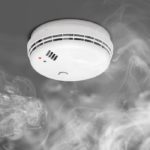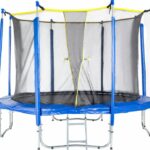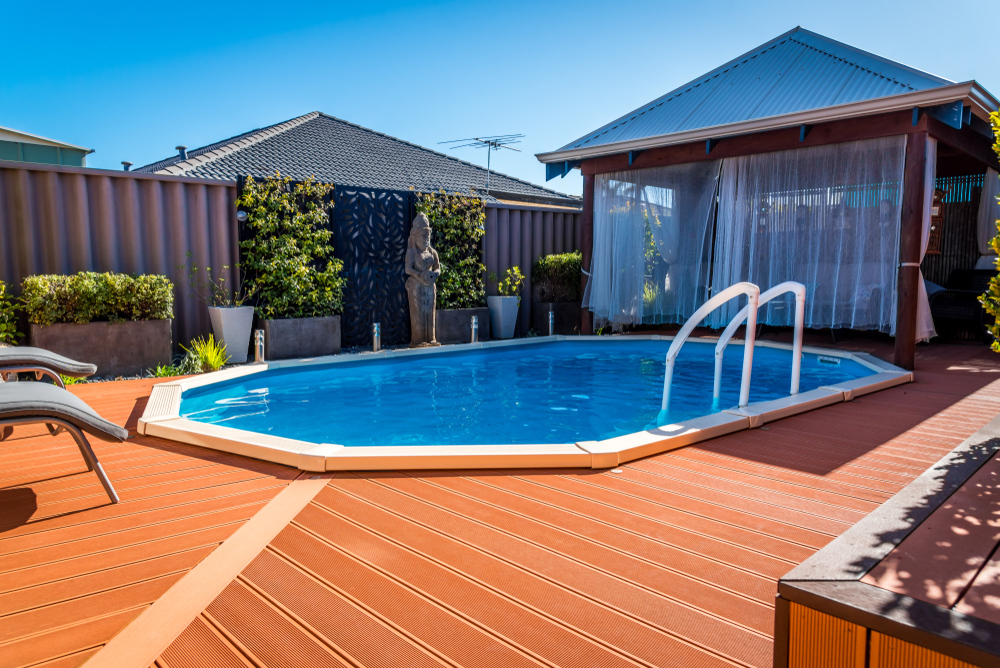Have you noticed mushrooms sprouting over mulch in your garden? Mushrooms sprout from airborne spores and usually grow on wet organic surfaces. While they won’t compete with plants for resources, they can still be a hazard for kids and pets. So, how can you get rid of mushrooms growing in your mulch?
You can get rid of mushrooms growing in mulch by applying vinegar, baking soda, or dish soap solution to the mushrooms or removing them by hand. You can prevent mushrooms from growing by applying fungicide, raking the mulch regularly, avoiding overwatering plants, or using compost instead of mulch.
Let’s take a closer look at why mushrooms grow on mulch in your garden and what you can do to keep them from growing in the first place.
Why Do Mushrooms Grow in Mulch?
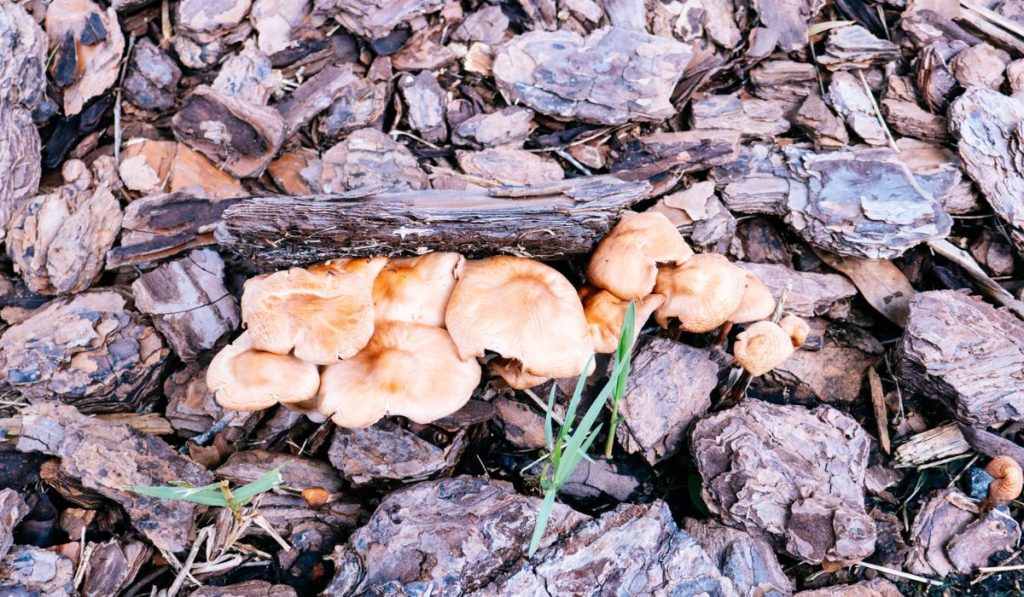
Mushrooms grow on moist, decaying organic matter, which is why you’ll usually see more mushrooms sprout after rain. Mushroom spores travel with the wind and sprout when they land in the optimal place.
Thus, mushrooms grow in mulch because it’s the ideal environment for them to grow. Organic mulch is usually made from wood chips, bark or leaves, and grass clippings. These materials retain moisture, which makes them vulnerable to mushroom spores. Even if it doesn’t rain, you’ll still have to water your garden, and the mulch will stay moist, attracting mushrooms.
Another reason why mushrooms usually grow on mulch is because of the placement of mulch in your garden. Mulch is usually spread on top of exposed soil in flower beds or around tree stumps.
These areas are often shady, which is why they remain damp and provide the optimal conditions for mushrooms to thrive.
Mushrooms are also more likely to grow on older, decaying mulch. As the mulch decays, it retains more moisture, and the decaying organic matter attracts mushrooms, fungus, and insects. For this reason, you should refresh organic mulch every few years.
How to Get Rid of Mushrooms in Mulch
If you notice mushrooms growing on mulch in your garden, you’ll have to either remove the mushrooms or replace the mulch. However, mulch usually lasts a few years, and it’s easier to kill the mushrooms.
Fortunately, mushrooms are sensitive and easy to kill, and you can solve the problem using household items. Let’s look at some of the easiest ways to kill mushrooms from mulch:
Use Baking Soda
Mushrooms grow in acidic conditions, and organic mulch is usually more acidic than the soil. Spraying a baking soda (on Amazon) solution on the mulch will lower the acidity and kill the mushrooms. Baking soda also acts as a fungicide and can be used to prevent mushrooms from growing on your mulch again.
When using baking soda to kill mushrooms, mix one tablespoon of baking soda into a gallon of water. Spray this mixture onto the mulch infected by mushrooms and the soil around it. The baking soda will lower the acidity levels of the soil and kill the mushrooms.
You may have to spray the baking soda for two to three days to get results, depending on the type of the mushrooms and how acidic your garden’s soil is. However, in most cases, baking soda will have an immediate effect on the mushrooms, and they should die after 2-3 days.
Use a Vinegar Solution
Vinegar is another effective household item that will kill mushrooms. The acetic acid in vinegar acts as a fungicide and will kill the mushrooms. However, avoid using undiluted vinegar in your garden as it may affect the surrounding plants.
Mix one part vinegar with 4 parts water to make a diluted vinegar solution that will kill most mushrooms. You don’t need to use a stronger vinegar solution since the mushrooms are delicate and die easily.
When spraying vinegar solution onto the mushrooms, take care not to spray it on the surrounding plants as the acid in the vinegar may damage certain plants. Also avoid spraying too much of the solution onto the soil as it may increase the soil’s acidity levels.
Use Fungicides
Fungicides (on Amazon) are specially formulated to kill fungus, which may cause diseases such as downy mildew in plants. However, most fungicides are just as effective in reducing the growth of mushrooms. While fungicides may not kill the mushrooms, they will prevent them from growing on mulch in your garden.
Use a Dish Soap Solution
If you don’t have baking soda, you can substitute it with dish soap. Both baking soda and dish soap will decrease the acidity of the soil, killing the mushrooms.
However, it’s better to use baking soda since it doesn’t contain any of the chemicals that dish soap may have. Nevertheless, dish soap is still effective at killing mushrooms growing on mulch.
Mix one tablespoon of dish soap with a gallon of water and spray the solution on the mushrooms. Try spraying it directly on the mushrooms since dish soap contains other chemicals that may damage plants. Spray the mushrooms daily, and the mushrooms will die quickly.
Remove the Mushrooms By Hand
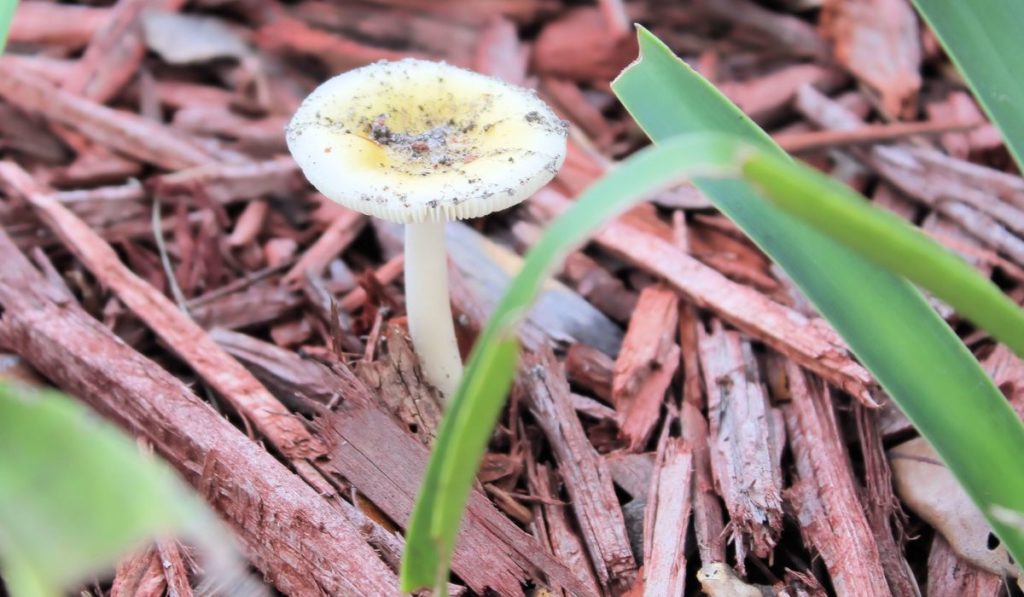
If you don’t mind getting your hands dirty (it’s your garden, after all!), then you can remove mushrooms by hand. Wear gloves, and remove the mushrooms carefully. Take care not to squeeze them as they may release spores.
Once you remove the mushrooms, you can work on methods to prevent them from growing again in the mulch. This brings us to the next step, which is preventing mushroom growth.
How to Prevent Mushroom Growth
While mushrooms are spread by spores that are carried by the wind, there are ways to prevent mushrooms from growing in your yard. If you keep your yard well maintained, you shouldn’t have too many mushrooms in your yard. However, even a well-maintained yard has areas where mushrooms may grow.
Here are a few ways to prevent mushroom growth:
Keep Your Yard Clean
Mushrooms usually grow on decaying organic matter that’s been left unattended for a while. Avoid leaving piles of moist leaves, sticks, or grass cuttings lying around. Rake your garden regularly and remove anything that’s rotting.
While compost and organic mulch will decompose over time, and the extra moisture could attract mushrooms, simply raking the mulch regularly will prevent mushrooms from growing on it. As for compost, always cover it with sand to prevent mushrooms or fungi from forming on the decaying matter.
Spray Fungicide on Mulch
If mushrooms regularly form on the mulch in your garden, spraying fungicide on the mulch will prevent mushrooms from growing on it. Fungicides will kill the mushrooms and alter the optimal conditions for mushroom growth. Fungicides are also helpful in killing other types of fungi that may spread from mulch to plants.
Use Compost Instead of Mulch
While mushrooms will grow more freely on mulch made from bark or wood chips, they don’t grow as freely on compost. You can often substitute mulch for compost as compost will also provide many of the same benefits as mulch.
However, compost doesn’t last as long as mulch and isn’t as effective at suppressing weeds. Compost also doesn’t have the same aesthetic appeal as mulch, which is why most people use mulch instead.
Keep Your Plants Trimmed
Mushrooms often grow in shady areas where the moisture is retained for longer. If you have trees and shrubs in your garden, you’ll often notice the mushrooms growing on the mulch around these plants.
To resolve this problem, keep your plants well-trimmed. This will allow the mulch to dry faster and reduce mushroom growth.
Avoid Overwatering Your Plants
Too much moisture is often the main cause of mushrooms growing on plants. Always water your plants more than necessary since this will keep the mulch moist for longer and attract mushrooms. Instead of watering the plants once a week, water them more often to keep your garden free from mushrooms.
Add a Fresh Layer of Mulch
Mushrooms tend to grow on old and decaying mulch, which is why you should always refresh your mulch when it starts rotting. If you have organic mulch made from wood chips, leaves, or bark, you don’t have to replace the mulch if it starts decaying. Simply add a new layer of mulch, and the mulch underneath will decompose like compost.
Replace the Mulch
If the mulch in your garden regularly attracts mushrooms, you should consider replacing it. Mulch usually lasts around 4-7 years, after which it starts to retain more water and attract fungi, mushrooms, and pests. If your mulch has started rotting and constantly attracts mushrooms or fungi, you should replace it.
You can reuse organic mulch as compost, but don‘t leave it uncovered as this may attract pests. When replacing mulch, avoid using too much mulch as this could affect the soil’s drainage. Never place more than 3-4 inches of organic mulch, and try to use less in areas that already have a previous layer of mulch.
Mulch Removal
Since older mulch is more susceptible to fungi, diseases, and mushrooms, it’s best to remove it before it damages your plants. While organic mulch usually needs to be replaced sooner than synthetic mulch, it’s much easier to remove.
Follow these steps to remove old mulch:
- Put on gardening gloves (on Amazon) and remove the mulch by hand. Take off one layer at a time, and avoid removing the soil with the mulch.
- Remove mulch from the edges of the lawn and around bushes and trees since this is where mushrooms usually grow.
- Use a leaf blower and rake to remove bits of mulch in hard-to-reach areas.
- Place the mulch in a trash bag or recycle it to make compost.
Composting Alternative
If you don’t want mushrooms growing in your garden due to their poisonous nature, you can replace mulch with compost, as we mentioned above. Mulch is more likely to get soggy and wet, making it more attractive to mushroom spores. Compost has more decomposing organic matter and isn’t the best environment for mushrooms to grow.
If you have compost made from twigs, leaves, and other garden waste, you can easily use it in place of mulch. However, compost isn’t as attractive as mulch and may not fit in with your garden’s design. You’ll also have to replace it more often since the compost will decompose in a year or two.





